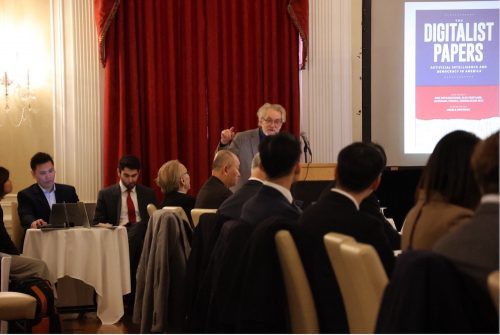Businesses increasingly rely on artificial intelligence (AI) and machine learning (ML) to make better products, drive operational efficiency, optimize customer sales and service, and improve how they go to market. The value of AI and ML technologies is only as high as governance standards that are in place. And those standards require the application of policies and frameworks.
Complicating the relationship between AI and data governance is the fact that AI itself is also being used to help manage an organization’s data and governance processes. This is a tricky balance. Ultimately, machines are there for automation and speed. Human practices, review, and verification steps as they relate to data gathering and management must be in place.
In practical terms, data governance is where risk management meets ethical standards. The policies and practices manage how your people, software, and machines use and apply data — and now they must factor in AI and ML. You don’t want to be that executive splashed all over the headlines when your AI’s use of unreliable data, without proper controls, causes damage to your brand, your business, or worst of all, your customer relationships.
Security and data privacy are also major components of your data governance program. AI can automate analysis and monitoring of data privacy, compliance, and security. For instance, when a data center breach occurs, data managers can train an AI-based tool to identify cyberattacks. AI can then identify patterns typical of cyberattacks and notify security teams and other authorities before data is compromised. This adds another level of security and protection and, unlike human resources, AI technologies can monitor data transmissions, which is a 24/7, 365-days-a-year requirement.
The original article was published at Acceleration Economy.
The Boston Global Forum (BGF), in collaboration with the United Nations Centennial Initiative, released a major work entitled Remaking the World – Toward an Age of Global Enlightenment. More than twenty distinguished leaders, scholars, analysts, and thinkers put forth unprecedented approaches to the challenges before us. These include President of the European Commission Ursula von der Leyen, Governor Michael Dukakis, Father of Internet Vint Cerf, Former Secretary of Defense Ash Carter, Harvard University Professors Joseph Nye and Thomas Patterson, MIT Professors Nazli Choucri and Alex ‘Sandy’ Pentland. The BGF introduced core concepts shaping pathbreaking international initiatives, notably, the Social Contract for the AI Age, an AI International Accord, the Global Alliance for Digital Governance, the AI World Society (AIWS) Ecosystem, and AIWS City.











